JETs try out traditional Japanese culture through extracurriculars!
JET participants not only engage in lessons as assistant language teachers, but participate in school extracurricular activities. At Fuji Senior High School, JET teacher Emily Monroe learns a Japanese tradition, the Tea Ceremony, together with the students of the Tea Ceremony Club.
In the Fuji Senior High School Tea Ceremony Club, members from the first year of the attached junior high school to third year of senior high school participate in regular practice, have tea ceremonies at culture festivals, and participate in tea ceremonies such as the largest tea ceremony event in Tokyo, the Tokyo Grand Tea Ceremony. In addition, they participate in various cultural exchange activities, such as warmly receiving guests coming to Japan from countries like Mongolia, Australia and Malaysia.
At practice, the students presented tea ceremony etiquette to each other, and with practiced manners, Ms. Emily made tea and served it to the students.
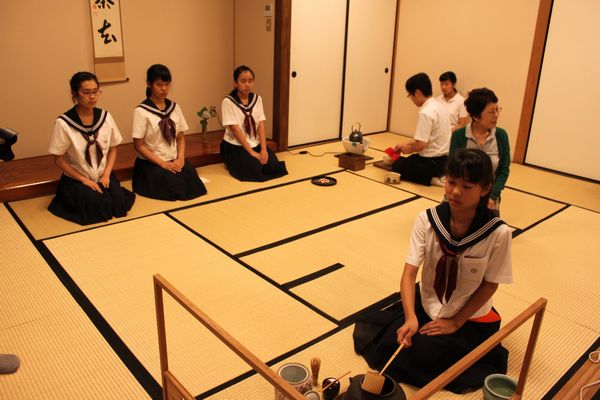
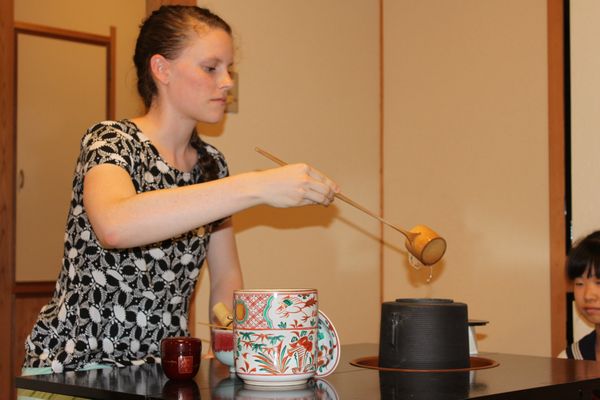
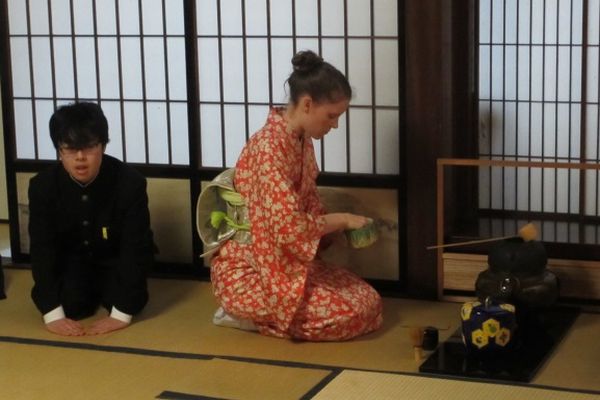
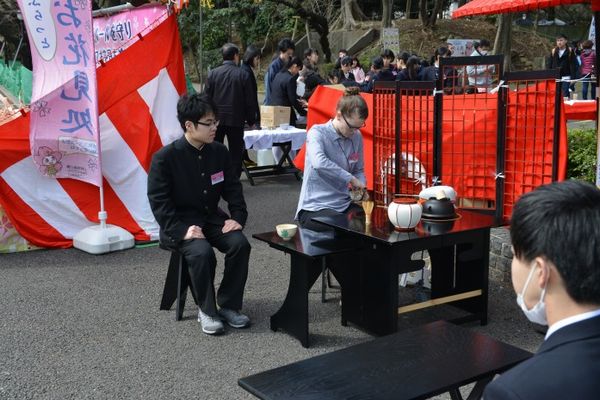
Ms. Emily spoke of her JET activities, including extracurriculars.
Immersed in the wonder of traditional Japanese culture
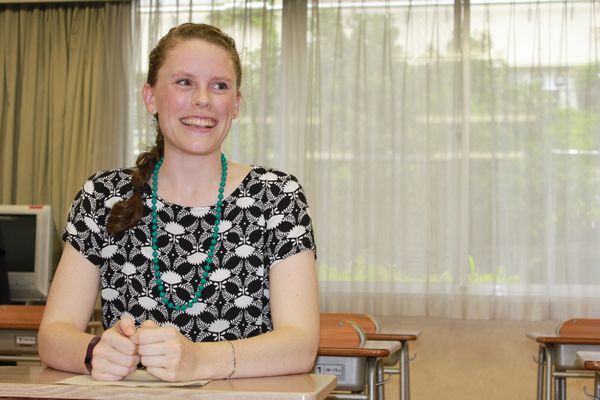
Teacher Emily Monroe
From Maryland, USA.
She came to Japan for the first time on JET 2 years ago, and works as an ALT at Fuji Senior High School.
How does it feel to participate in traditional Japanese cultural activities through the Tea Ceremony Club?
Ms. Emily:
I feel that Japanese people possess pride and respect with regards to their ancestors. Connecting to the unseen past is a splendid thing. Being able to touch a tradition surviving all the way to the present day is a truly wonderful. I'm proud to have become a part of that tradition myself.
In terms of English communication, how do you differentiate lessons and extracurricular activities?
Ms. Emily:
Lessons are a valuable place to learn new words and grammar, but club activities let you experience English in a different way. You don't follow any textbook, and you can talk about things you like. You could say it's a chance to practice what you've learned in class.
Did you know about tea ceremony before you came to Japan?
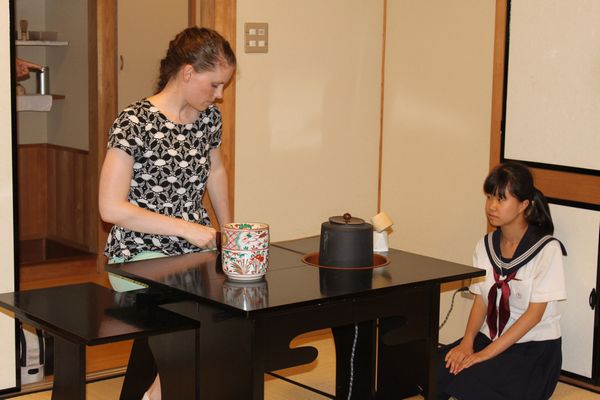
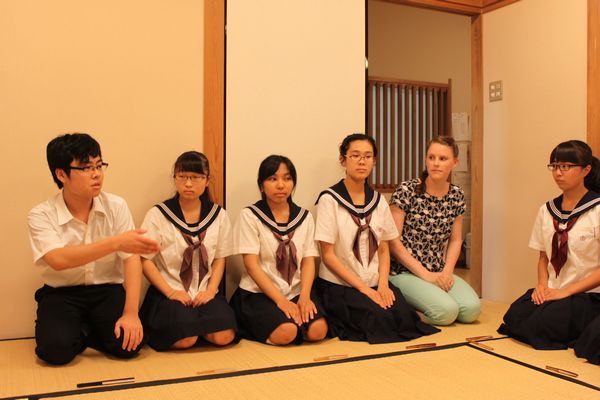
Ms. Emily:
I knew a little about it, but I learned a lot more once I arrived in the country. Showing the students how I challenge myself through tea ceremony, I want them to feel how important it is to take on challenges even if they fail, even when it comes to speaking English.
Besides tea ceremony, is there any other Japanese tradition that you like?
Ms. Emily:
The sense of hospitality. In Japan, for example, items bought at shops will be wrapped politely. Such things demonstrate how important it is to show respect to another party throughout Japanese culture.


